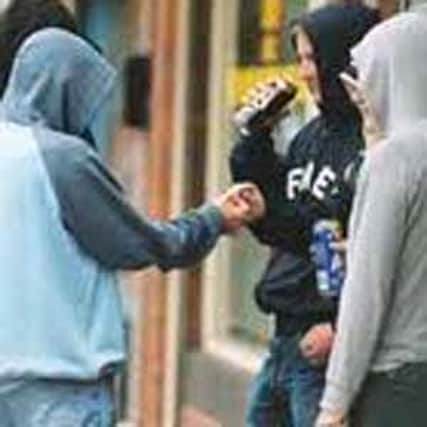Yobs could face losing their booze: VOTE


Council and police officials are considering imposing a Rotherham-wide Designated Public Places Order (DPPO).
But prospect of the borough-wide order was on the back burner this week after councillors deferred a decision on whether to introduce such an order in Rotherham and asked officers to investigate how the powers worked in other areas.
Advertisement
Hide AdAdvertisement
Hide AdA DPPO would give police the power to confiscate alcohol, including any unopened containers, in areas where drinking is causing anti-social behaviour.
Anyone failing to comply with an officer’s order to stop drinking could be arrested.
A report to Rotherham councillors this week said that a borough-wide order was being considered in response to concerns in several areas which had led police to consider imposing DPPOs.
Under the Criminal Justice and Police Act 2001, local authorities have the power to make an order designating any public place within their area if they are satisfied that nuisance, annoyance or disorder has been associated with the consumption of alcohol in that place.
Advertisement
Hide AdAdvertisement
Hide AdThe report by Steve Parry, the council’s neighbourhood crime and justice manager, said that just eight per cent of anti-social behaviour incidents, recorded by South Yorkshire Police, could be considered to be alcohol related.
But it added that analysis of incidents “highlighted that the role of alcohol in crime and disorder stretches both beyond the town centre and beyond night-time economy violence offences.”
Areas across the borough noted for both alcohol-related crime and anti-social behaviour included include Wath, Swinton, Brinsworth, Maltby, East Dene and Rawmarsh, the report said.
Advertisement
Hide AdAdvertisement
Hide AdA survey of Rotherham residents had identified that a third thought of drunk or rowdy behaviour as a problem and more than a quarter rated anti-social behaviour as being a very or fairly big problem, Mr Parry noted.
The report added: “Action to deal with the harmful effects of alcohol, of which a DPPO is only one element, safeguards children.
“This proposal aims to encourage responsible drinking and reduce disorder, both of which should positively impact on children.
“The making of the order should be seen in the context of the council’s wider licensing policy, where protecting children from harm is a key objective.
Advertisement
Hide AdAdvertisement
Hide Ad“It is difficult to prove that it is the actual drinking of alcohol in public places that is the main cause of anti-social behaviour, compared to home and licensed premises consumption.
“However, there are pockets in the borough where incidents and perceptions of anti-social are shown to be linked to the drinking of alcohol in public areas.”
Mr Parry’s report recommended that Rotherham councillors decide not to bring in a DPPO, concluding that a borough-wide order was “not a proportionate approach for Rotherham.”
But the council’s Cabinet member for neighbourhoods, Cllr Rose McNeely, deferred a decision and asked officers to look into how other areas had enforced DPPOs, with 23 councils having introduced them so far.